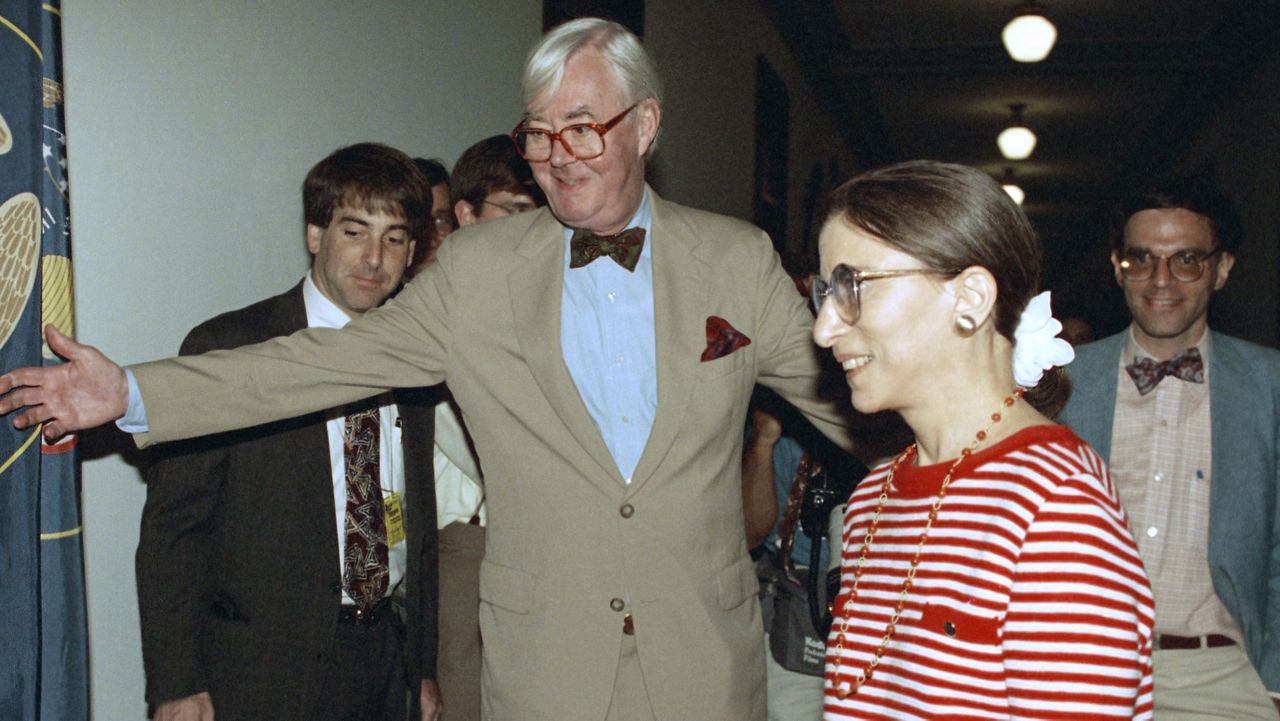Photo: Daniel Patrick Moynihan and Ruth Bader Ginsburg in 1993. Marcy Nighswander/AP.
Standing behind a tiny judicial giant from Brooklyn is a towering senator who was raised in Hell’s Kitchen.
When the time came early in Bill Clinton’s presidency to fill a vacancy on the Supreme Court, he spoke with New York Sen. Daniel Patrick Moynihan and asked for a name.
“It is not for me to say,’’ Moynihan recalled later in a letter.
“I asked,’’ Clinton replied.
After Moynihan told him that he’d pick Ginsburg, Clinton replied: “The women are against her.”
Moynihan shot back: “That is your problem, Mr. President. You have too many friends. You cannot govern without enemies.”
It’s hard to imagine today, but Clinton was right about Ginsburg’s weakness with some women’s groups. Just six months earlier, Ginsburg had given a lecture at New York University in which she raised serious questions about Roe v. Wade, wondering if the landmark 1973 abortion rights decision was too far sweeping at the time.
In his own memoirs, Clinton points out that he first wanted New York Governor Mario Cuomo to fill the vacancy, “but he wasn’t interested.”
Not mentioning Moynihan’s role in the selection process, Clinton says that after looking at 40 candidates, he settled on three finalists: Interior Secretary Bruce Babbitt, Judge Stephen Breyer, and Ginsburg. Not wanting Babbitt to exit his cabinet and worried about a potential nanny problem with Breyer, Clinton focused more on Ginsburg.
Clinton says that he was “tremendously impressed” with the judge after meeting with her in the White House residence. He thought that she would be able to “work with the conservative Republican justices to reach consensus when possible; and stand up to them when necessary.”
Frustrated by leaks, Clinton says he was amused by a report that he had picked Breyer: “I have to confess that I was almost as happy about surprising the press as I was with the choice I had made.”
Given that he picked Breyer for the high court the following year, Clinton can be forgiven for being so glib. But as we remember Ruth Bader Ginsberg, let’s not forget that a lanky Irish-American intellect who grew up in Manhattan was an early backer of a judge who was raised just across the river in Midwood.
